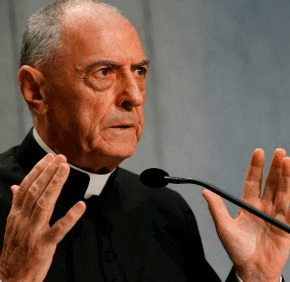By Cindy Wooden
Catholic News Service
VATICAN CITY – While a juridical process is necessary for making accurate judgments, the Catholic Church’s marriage annulment process must be quicker, cheaper and much more of a pastoral ministry, Pope Francis said.
Rewriting a section of the Latin-rite Code of Canon Law and of the Code of Canons of the Eastern Churches, Pope Francis said he was not “promoting the nullity of marriages, but the quickness of the processes, as well as a correct simplicity” of the procedures so that Catholic couples are not “oppressed by the shadow of doubt” for prolonged periods.
The Vatican released Sept. 8 the texts of two papal documents, “Mitis Iudex Dominus Iesus” (“The Lord Jesus, the Gentle Judge”) for the Latin-rite church and “Mitis et misericors Iesus,” (“The Meek and Merciful Jesus”) for the Eastern Catholic churches.
The changes, including the option of a brief process without the obligatory automatic appeal, go into effect Dec. 8, the opening day of the Year of Mercy.
The rules for the Latin and Eastern churches are substantially the same since the differences in texts refer mainly to the different structures of the hierarchy with Latin churches having bishops and Eastern churches having eparchs and patriarchs.
Pope Francis said the changes in the annulment process were motivated by “concern for the salvation of souls,” and particularly “charity and mercy” toward those who feel alienated from the church because of their marriage situations and the perceived complexity of the church’s annulment process.
The reformed processes were drafted by a special committee Pope Francis established a year earlier. Among the criteria he said guided their work, the first he listed was the possibility of there being “only one executive sentence in favor of nullity” when the local bishop or judge delegated by him had the “moral certainty” that the marriage was not valid. Previously an appeal was automatic and a declaration of nullity had to come from two tribunals.
Monsignor Pio Vito Pinto, dean of the Roman Rota, a Vatican court, and president of the commission that drafted the new rules, told reporters Pope Francis asked for updates throughout the year, sought a review by four “great canonists” not involved in the drafting and, in the end, adopted the changes with “great seriousness, but also great serenity.”
The changes made by Pope Francis, particularly the responsibility and trust placed in local bishops, are the most substantial changes in the church’s marriage law since the pontificate of Pope Benedict XIV in the mid-1700s, Monsignor Pinto said. Even with the 1917 and 1983 new Codes of Canon Law, the process for recognizing the nullity of a marriage remained “substantially unchanged,” he said.
“Putting the poor at the center is what distinguishes the reform of Pope Francis from those made by Pope Pius X and Pope Benedict XIV,” Monsignor Pinto said.
In fact, Pope Francis ordered that the “gratuity of the procedure be assured so that, in a matter so closely tied to the salvation of souls, the church – by demonstrating to the faithful that she is a generous mother – may demonstrate the gratuitous love of Christ, which saves us all.”
Cardinal Francesco Coccopalmerio, president of the Pontifical Commission for Legislative Texts, who also was a member of the commission, insisted the pope’s new rules were not about “annulling marriages,” but about recognizing and declaring the nullity of a marriage, in other words, declaring that it never existed as a valid sacrament.
Although the new rules remove the obligation that a declaration of nullity automatically be appealed, he said, it does not remove the right of one of the parties to appeal the decision. However, he said, “and this is a great innovation,” if the appeals court believes the appeal is “obviously a delaying tactic,” the appeals court can issue a decree confirming the nullity of the marriage without a full process.
Monsignor Alejandro Bunge, secretary of the commission and a member of the Roman Rota, said the new processes are motivated by recognition of the church as a “field hospital,” as Pope Francis has described it. “For those who have special injuries – a marriage null from the beginning – we will have intensive care” in the form of more rapid annulment procedures.
While many marriage cases will continue to require time in order to arrive at the truth, he said, the longer procedure will be reserved to those cases in which it is not obvious that the marriage was null from the beginning and in which the couple does not agree that a real marriage never existed.
Also see:
Youths show the way on ‘Feet for Francis’ shoe drive
Copyright ©2015 Catholic News Service/U.S. Conference of Catholic Bishops.


